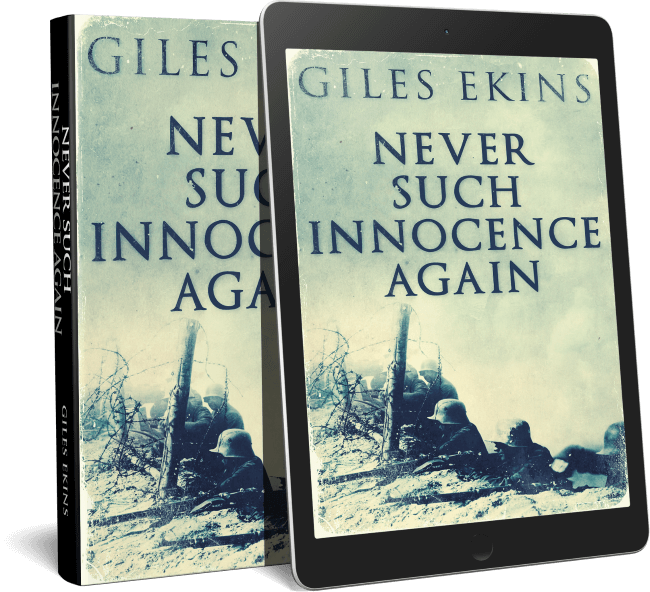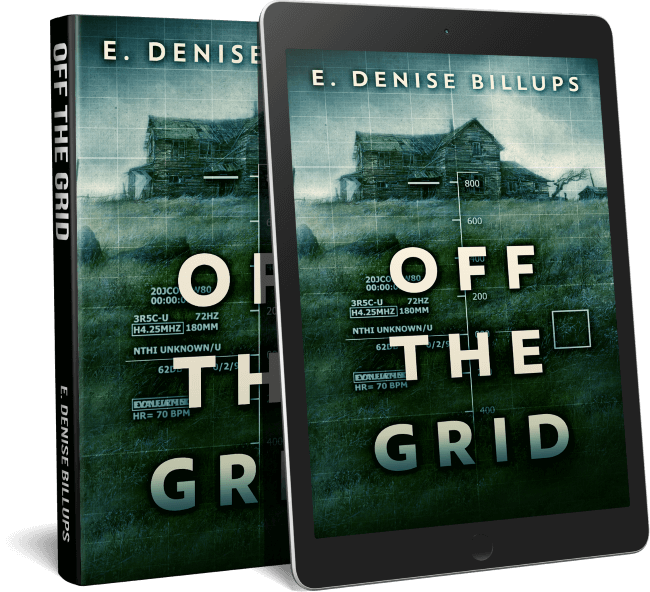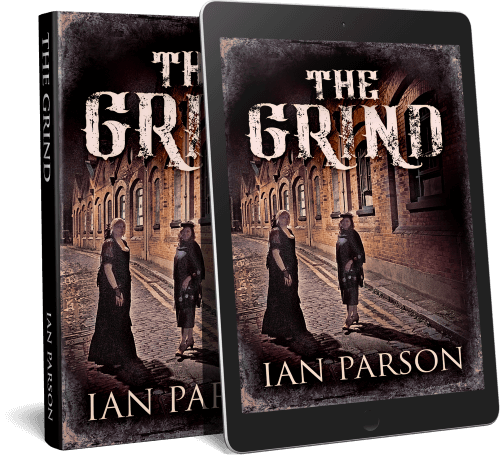Never Such Innocence Again
Never Such Innocence Again - book excerpt
Prologue
Immutable, as permanent as the earth itself.
We will remember them.
The War Memorial in the village of Ashbrook Stills in the county of Durham, stands at the junction of Whitton Lane and Ashbrook Road. It is a grey granite obelisk, standing proudly on a tiered plinth upon which are laid the poppy wreaths on Remembrance Sunday.
It is some nine feet tall and is inscribed with the names of men from the village and surrounding countryside who died for their country in the Great War of 1914-18.
In 1914, the population of the village stood at 267 men, women and children. Twenty-nine of them are commemorated on the Memorial. Seven more names were added after World War II. Below the list of names, the stanza of a poem reads:
They shall not grow old, as we that are left grow old,
Age shall not weary them, nor the years condemn.
At the going down of the sun and in the morning,
We will remember them.
In 1953, Councillor Mrs Edwardes donated a wooden bench in memory of her husband Percy, a survivor of the trenches whose lungs finally gave out after having been gassed in the Ypres Salient in 1917. The bench sits alongside the memorial; old women, many of the widows of those whose names are on the roll, used to sit to rest there on sunny days as they walked down to the Post Office to collect their pensions.
If you carry on down Whitton Lane, you will come to the rows of miners’ cottages built in 1848 when the mine, Pit No 1, was first sunk. The cottages, six rows in all, running from the derelict railway line up to Whitton Lane, are all identical. The front door, which was rarely ever opened except for a wedding or a funeral, leads directly into the two-up two-down cottages with kitchens at the back. An entry passage, serving four houses, leads into the backyard where the privy used to be, and where the back gate leads out onto the back lane.
The streets are all named after Queen Victoria and her family.
At the top, naturally, stands Victoria Street with Albert Street next (never very popular), followed in quick succession by Edward Street, Alice Street, Alfred Street, and Helena Street. They stopped building then, because No 2 Pit proved to be so wet and thin-seamed as to be unprofitable.
The pit head buildings, which were a couple of hundred yards beyond the cottages, have been dismantled for some years now. The tall stone engine house, with the dragon-breathing steam winder that drove the huge fly wheel and cable drum (built in 1852 by J.C. Joicey of Newcastle upon Tyne), was a masterpiece of Victorian industrial engineering.
Next to the engine house stood the heapstead building, standing directly over the mineshaft with the great spinning headstock pulleys guiding the cables that sent down the cages full of men, and brought up the tubs full of coal from the depths below. It was thought that those pulleys would turn forever; they seemed moulded into the earth, immutable, as permanent as the earth itself.
The spoil heaps have been grassed over now, and a stand of new trees follows the line of the railway tracks that used to carry the coal to the Penshaw Staithes on the River Wear or the Dutton Staithes on the Tyne, there to be loaded onto colliers and shipped all around the country, to East Anglia and the Thames, and across the North Sea to Scandinavia and the Baltic.
The pit cottages are still there, but the spirit that lived with them died with the closing of the mine; they are still cottages, homes even, but they are homes without soul, the very reason for their existence died years ago.
The 'Green Tree' pub is still there on Whitton Lane, at the bottom of the hill that leads up to the village of Bitchburn, too small to be even called a village, merely a single street of houses by what used to be the Queen Mary Drift Mine, also long since closed. The names of the dead of Bitchburn are also commemorated on the Memorial.
Number 2 Ashbrook Road is the first house on Ashbrook Road and is where Mrs Ida Cantley used to live. Ida, who died in April 1995 when she was 98, had lived there ever since her marriage to Jackson Wragg in 1913, moving two doors up the road from number 6 where she had been born in 1897, Queen Victoria’s Jubilee year. Widowed in 1916, when Jackson had been killed on the Somme, she married Fred Cantley in 1924 and was widowed again in 1929, when gas exploded in No 1 Pit, killing 17 miners.
Ida lived alone for the best part of 65 years. Her children had long since left home and scattered far and wide. Only her youngest daughter, Mary, used to visit regularly, every two months or so, but Ida did not feel lonely or neglected.
She had her memories and as she sat by her front room window, she could see the War Memorial without even turning her head. She drew great comfort from it; even after more than 75 years, it solaced her to know that Jackson Wragg’s name had not been forgotten.
Her tears had long since dried but the pride she felt for the fallen lived with her until the day she died. When the Boy Scouts, Freemasons and old soldiers stood to observe a minute’s silence by the Memorial on Remembrance Sunday, her heart seemed fit to burst with pride and it was as well to have a hankie tucked in her sleeve, as the tears sparkled at the corner of her eyes.
Ida had known that she had not much time to live; the hard winters seemed harder to get through than ever before, but the prospect of her death had not dismayed her. She knew she would be re-united with Wragg and Cantley, who had been good friends to each other and good, if brief, husbands to her, and after she had gone, the Memorial would live on forever, of that she had no doubts.
The Memorial would live on forever.
At the going down of the sun, and in the morning,
We will remember them.
Chapter 1
July 1914
'I hope it may'nt be human gore.'
Mary Blackett Garforth dozed fitfully in her chair. She was desperately tired, in fact she could hardly remember a time in her life when she had not been tired, no, not just tired, exhausted to bone-weary numbness, drained to a point beyond fatigue. Possibly as a child maybe, but even then, she would have had to help her mother look after her brothers and sisters, carry the water for her Dad’s bath, help with the washing and the baking, run errands and black the stove.
At 13, she had gone into service at 'the Big House' as Exham Hall, ancestral seat of the Lords Exham, was known, and life as a 'tweenie' had not been conducive to leisure or an excess of sleep either, especially when old Mrs Lankester, the master’s mother -in-law, had still been alive, as vicious an old bitch as ever had been; nothing could ever be right for old Mrs Lankester. No matter how hard you tried, she would always find fault and box your ears, she made you bend over her bath chair and keep still as she smacked her leathery hand, full tilt, at the side of the head.
'Take that, girl, and if you can't do better next time, you 'll be all the sorrier for it’. Or worse still, she would smack her walking stick onto your knuckles, often until they bled.
She had been hateful and petty, and Mary had been glad, no, ecstatic, when she died, and even though she prayed hard for forgiveness for harbouring such un-Christian thoughts, nothing could replace the relief when the old witch was finally laid to rest in the family plot. 'And good riddance to you', Mary had thought as the coffin was lowered into the grave. All the staff had been allowed two hours off, without pay, to attend the funeral and had stood, heads bowed, at a discreet distance, away from the graveside and Mary could bet every single farthing she owned that not one of the other gardening or domestic staff felt sorrow or grief at old Mrs Lankester’s passing.
Things were better after that, when she became Lady Exham’s personal maid, still tired, of course, but tiredness was simply a way of life and she remained as maid to Lady Exham until she died in an accident in 1897 when following the Hunt—trying to put a 3'0’ horse at a 4'0’ fence was how Mr Brindley, the butler, had put it in his usually sneery way, curling his lip as he spoke, his moustache crawling up into his nostrils like a hairy slug.
Butter wouldn't melt in Brindley’s mouth above stairs, bowing and scraping and licking the master’s boots until his tongue was as black as a coal scuttle whilst, below stairs, he hadn't a good word to say for any of the family. He was forever asking Mary to go into the cellar with him, but Cookie said she knew what he was after and told him to keep his wandering hands to himself.
Then, in 1898, Mary had married Jack Garforth and moved down from Exham Hall to Victoria Street. Then, she had really learned what tiredness meant.
She was Jack’s second wife and he had come with a ready built-in family, Jack himself, Joe the eldest boy, Daniel, Mary Margaret, always both names together, as if they were joined into one, Mary-Margaret. No one could remember how Mary Margaret came to be called that; she wasn't christened that way, as though it were a double name like the gentry sometimes did, it had just happened.
Margaret Mary followed and then there was Harold, sneery, thin, creepy Harold, burning with sullen resentment at the world, who always seemed to be somewhere else, or at least his mind was. She tried to love all of Jack’s children as her own, but there was something unlovable about Harold; the way he looked at her reminded her of Brindley at 'the Big House'.
Mary did not like being in the house alone with Harold. He never did anything untoward, never touched her or said anything you could take exception to. It was just the way he looked at you—with red bitterness in his eyes—and it made her feel uncomfortable to be near him.
After Harold, there came Edgar and her own especial favourite of Jack’s children, the wondrously dreamy Eleanor, so pale and ethereal and fragile that Mary had kept her at home far longer than was normal, stopping Jack from letting her go into service, claiming she was needed at home.
This was only partly true. Mary always needed the extra pair of hands around the house, but it was more than that. Eleanor was … what was the word? Simple? Not in the sense of stupid, but innocent, naive, untainted by the world, as trusting as a lamb amongst wolves. Mary felt that Eleanor would bruise too easily if left to fend for herself … bruise inside where the hurt was always so much the greater.
There had been three other bairns: John, Jack’s first born, Edward and Sophie, but all had died in infancy. Losing those three children had been too much for Jack’s sickly first wife, also called Mary. She had simply been worn out and had died giving birth to Eleanor.
Mary always wondered if something had happened during the childbirth that had left Eleanor the way she was; perhaps the cord had got wrapped around her neck, starving her of oxygen. They said that that could cause simple-mindedness, but there again, Eleanor wasn't simple-minded exactly.
At least, not in the way you thought of simple-minded children, not like Jimmy Poskit from Alice Street, twisted and garbled, forever touching and playing with himself, leering at you as he did so, a bit like Harold, only more so. And come to think of it, Jimmy wasn't the only Poskit boy who was a bit feeble-minded, a bit peculiar. Sammy Poskit, who was married to Ethel Whittaker as was and lived on Whitton Lane, he was a few lumps short of a full coal scuttle as well.
Then, there were her own children, Nicholas, the apple of her eye, who had won a scholarship to the grammar school and would never ever have to work underground like his father or brothers and for that blessing alone Mary gave Thanks every night.
And lastly there were the twins, Isaac and Saul, 13 years old now, and up to every conceivable bit of mischief imaginable. Their father had taken his belt to them on more than one occasion and would no doubt do so again, but nothing seemed to have much effect. They would take their beatings, dry their tears and, within minutes, be up to their tricks again, as artful as a barrow-load of monkeys.
Still, Mary thought, ‘I would rather have them as they are, safe and above ground, than going down the pit, but soon, too soon, they would be 14 years old, no longer boys.’ Unless she could find some way out of it; down the mines they would go. The prospect filled her with dread that clogged up her heart. Often, all too often, there were deadly collapses, gas explosions or flooding. The pit was always hungry for men; it devoured men with ferocity that was almost Satanic. Too many men had been maimed and killed for any mother to be sanguine about her children working in the mines.
Mary nodded off again for a minute or two, and then she woke with a start of disorientation. She had felt herself about to slip into a deep pit, a dream she had had over and over recently, and it terrified her, believing that it portended a great disaster, and to a miner’s wife that could only mean a collapse or explosion underground.
She shuddered in trepidation. ‘Someone walking over my grave,' she whispered fearfully and pulled her shawl tighter about herself. She was cold as well, even in the height of summer; those dead chill hours before dawn could be frigidly bitter.
Mary stretched to ease the knots on the muscles of her neck and back. Yesterday had been washday, the most tiring of all days, hours spent hunched over the washtub, as sheets and linen and thick black coal encrusted pit clothes were scrubbed and battered on the washboard, boiled and beaten with the poss stick, rinsed in the rinse tub, twisted and mangled damp-dry, the kitchen filled with a dense, almost gelatinous fog compounded of sweaty clothes and steam and soap fumes, a sour-sweet brume that caught in the throat and stung the eyes.
Line after line of washing had crisscrossed the back street, the whole street bedecked with washday bunting like a fleet of galleons at full sail. Then, it had rained, so all the clothes had to be swiftly dragged off the lines and brought in to join the piles of still damp and wet clothing waiting to go out on the line. The skies cleared up and, with Eleanor’s help, they had strung out the laundry once more, only for the coal cart to come around, so back inside went the still wet washing, to join the ever-growing pile again.
She thought she would never get any of it dry and, in fact, there was still a load drying on the clothes horse in front of the range; the boys’ school shirts and underwear hung over the brass rail under the mantle shelf and yet more hung on the drying rack suspended on pulleys from the ceiling, a gallows liberally strewn with flannel shirts and grub-grey vests, long johns, short hogger trousers, neckerchiefs and wool stockings, dangling like executed criminals hanging from a gibbet.
By the time she had got all the washing hanging somewhere to dry, there had been Jack’s dinner to fix when he came back from the 'Green Tree' and then, later, Edgar’s dinner and breaktime sandwiches to fix before he went on night shift.
Harold had come in from afternoon shift at ten and needed his bath and dinner, there was ironing to do, and it had been well after midnight by the time she had finished, bone weary, back aching, hands with the dead white skin of a drowned corpse, eyes bleary and smarting, wanting nothing more than to fall into her bed and sleep for a week.
But she could not, Jack was on morning shift, starting at four and she would have to be up and about by three o'clock to get his breakfast ready and prepare his bait, the sandwiches for his break. They were always strawberry jam sandwiches, sticky jam to lubricate the back of a throat made as raw as a harsh file by the coal dust.
She squinted up at the clock nestling between a forest of brass candlesticks on the mantle-shelf, peering through the nightgloom, trying to read the time, but could not and had to get up from her chair to hold the clock close to her face. 'Ten to three,' she said to herself. 'Well, I'm up now and may as well stay up.'
And feeling her bladder suddenly full, she padded across the backyard to the privy, wrinkling her nose as ever at the smell. No matter how often she scrubbed it, no matter how much carbolic was used, she could never get rid of the smell, the smell of stale urine and fetid dankness that seemed permeated into the very fabric of the whitewashed walls.
As she hoisted her skirts, the cold air on her bare legs and thighs sent a shiver through her body, rattling the bones inside her goose-pimpled flesh.
The night air was still, as if buried under a quilt of silence, an eerie silence; even the sound of her urine tinkling into the bowl seemed deadened, mute, and Mary shuddered again, portents of disaster casting icy fingers up her spine.
‘Somebody else walking on my grave,' she said aloud, needing the sound of her own voice to break the spell of heavy, woven silence.
Back indoors again, she warmed herself over the dampened down coals in the range, washed her hands in the stone sink and swiftly made up Jack’s sandwiches before going into the front room to wake him.
The big four-poster bed seemed to fill the whole room, and she looked longingly at it again, feeling her eyelids weighting down from just thinking about sleep. She might catch an hour or so in the rocking chair after Jack had gone, but Edgar was on night shift and would be home at six, ready for his bath and breakfast.
Harold was on two o'clock shift, the boys Isaac and Saul had to be got off to school, and Nicholas to the Grammar; she would have some time to bake and prepare dinner, by which time Jack would be home again.
Jack was a small compact man, as strong and wiry as a bull terrier, and he seemed lost in the big four-poster bed, like a baby curled up in the corner of a cot. He was snoring lightly and, as she looked down on him, Mary felt a surge of affection for him run through her like static electricity. He had been a good man to her, better than she deserved, a good husband and provider who had been there for her when she had needed someone—desperately needed someone.
Life with Jack had been hard, would remain hard, there was no denying that, but the lot of any miner’s wife was hard, but when he had a good cavil, a good thick seam to work at; money was adequate, he didn't beat her as some men beat their wives, and he was not much taken for the drink. A pint or two at the 'Green Tree' to wash down the dust, but that was all, and who would deny him that?
Reaching over, she shook him by the shoulder. ‘Jack. Jack. It’s time.’
‘Uhhh? What?’
‘Time, Jack. Time!’
She could see him struggling to wake, coming up through the layers of sleep, coming up from the depths as if coming up from underground in the mine cages. He yawned and stretched and coughed and sneezed and farted, all at the same time, and then rubbed at his eyes before swinging out his legs from under the covers and sitting up straight.
‘Aye, right then Mary. Be with you in a minute,’ he said as he stretched again. ‘You get us me breakfast on, though I doubt you've a deal left.’
‘Bread. There’s always bread, you know that. And I’ve still got a bitty bacon rind and fat. I can fry it up with your bread. And you've got jam for your bait.’
‘That'll do grand, Mary. And choose us the book, will you?’
‘Owt special, pet? I'll put it by your plate?’
‘Nay, you choose. Right, best be getting on I suppose, else Billy Bedlam will be here, and the day has yet to come when I'm still in my bed when Billy comes by.’
Even as he spoke, they could hear a cry at the head of the street, ‘LAD AWAAAY. UP. UP. LAD AWAAAY. GET UUUP, GET UUUP. UP, UP,’ as Billy Belledame, better known as Billy Bedlam, the caller, came down to rouse those men on early shift.
Mary put on the bacon rind and bread to fry together, glad she had been able to eke out that last piece of flitch. The miners had been on strike, coming out in sympathy with the building workers, and although the Union had sent a delegate to the Institute to explain it to the men, and Jack had tried to explain it to her, Mary could not understand, refused to understand, why she should have to put her family on short measures out of sympathy for the building workers. Times were hard enough when Jack and the elder boys were working, let alone when they were on strike.
Two weeks they had been out and even now they had gone back, had been back for 10 day,s there was no money in the house. They would still not get paid until Saturday, which meant four weeks without a penny coming in. And for what? Going on strike to improve your own lot, that she could understand, striking to get a better rate for the coal produced, since the men at the face were paid 'by the weight of mineral gotten' as the Act put it, that she could understand, but to strike, to make her children go hungry merely to help some unknown building workers in another part of the country? That she could not accept, and it still made her angry to think about it.
She poured a big mug of tea, set his fried bread and bacon on a plate, leaving it by the hob to keep warm, and crossed over to the wooden bookshelf on the opposite wall. Jack liked to read for 10 -15 minutes before going to work. ‘Sets me at ease,' he had told her. 'Gives me something to think about, some'at to mull over in my mind when I'm at the face. Why, you'd go daft else, nothing to take your head up with, nothing to think on except the hewing.'
He had a full set of Dickens, green morocco leather-bound, gold-embossed, that he had found in a bookseller in Durham. They had not been new when he had bought them, years and years ago, not even secondhand, third- or fourth-hand maybe, but they were his pride and the day would not go past that he did not read from them. He liked for Mary to pick a volume at random and lay it by his place and he would open it at any page and read for a while.
Book Details
AUTHOR NAME: Giles Ekins
BOOK TITLE: Never Such Innocence Again
GENRE: Historical Fiction
PAGE COUNT: 326
IN THE BLOG: Best War Fiction Novels
















Praesent id libero id metus varius consectetur ac eget diam. Nulla felis nunc, consequat laoreet lacus id.